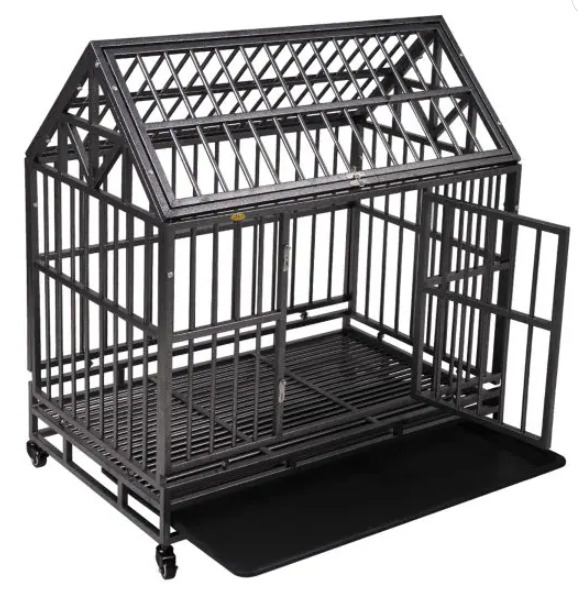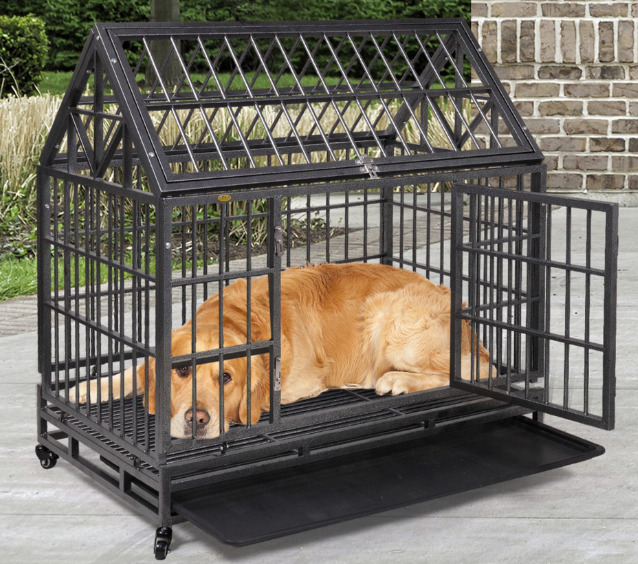Losing a beloved pet in dog crate is undoubtedly one of the most challenging experiences a pet owner can go through. The grief is compounded when we witness behaviors in our furry friends that we may not fully understand, such as the haunting howl that some dogs emit before they pass away. In this exploration, we delve into the possible reasons behind this heart-wrenching phenomenon.
Communication and Instincts
The Unspoken Language of Dogs
Dogs, renowned for their loyalty and companionship, have a unique way of communicating with us. While we may not comprehend their language in the same way they do, there’s an undeniable connection that transcends words. A dog’s howl in dog crate is one of the many forms of expression they use to convey their emotions.
Coping with Loss
Just as humans may vocalize their pain or emotions during times of distress, dogs in dog crate might do the same. The impending loss of life, whether it’s a natural end or a decision made by a caring owner in consultation with a veterinarian, could trigger a dog to howl as a way of coping with the impending separation.
Emotional Bond
The deep emotional bond between a dog and its owner is undeniable. Some experts suggest that a dog’s howl before death might be an expression of their connection with their human companions. Dogs in dog crate may be seeking reassurance or expressing a need for comfort in their final moments.
Sensing Impending Death in Dog Crate
Sensing the Inevitable
Dogs are known to possess an acute sense of smell and intuition. As their health declines, they might pick up on subtle changes within their own bodies or sense the imminence of their passing. The howl in dog crate could be a manifestation of their attempt to communicate distress or seek comfort in their final moments.
Cognitive Decline and Confusion
Senior dogs or those suffering from cognitive decline, such as canine cognitive dysfunction (CCD), may experience confusion and disorientation. These dogs in dog crates often have difficulty recognizing familiar people, places, or objects. As a result, they may become anxious, disoriented, and exhibit erratic behaviors, including howling. Providing a structured routine, creating a safe and comfortable space, and consulting with a veterinarian can help manage cognitive decline in older dogs, potentially reducing episodes of distress and howling.

Discomfort and Emotional Distress in Dog Crate
Physical Discomfort
Illness or pain could be a significant factor contributing to a dog’s howling before death. Dogs, unable to express their discomfort in dog crate through words, resort to vocalizations as a way to communicate distress. Understanding the source of their pain, whether it be a chronic condition or acute ailment, is crucial for both the pet owner and the veterinarian.
Emotional Response
Dogs are highly attuned to their surroundings and can be influenced by environmental triggers. Loud noises, unfamiliar scents, or even changes in routine can evoke a strong emotional response in dogs. As they approach the end of their lives, these triggers in dog crates can heighten their anxiety and distress, leading to increased howling. Understanding your dog’s individual sensitivities and providing a calm and familiar environment can help alleviate their emotional distress during this sensitive time.
Inherited Behaviors
Certain dog breeds have a predisposition for howling due to their genetic makeup and instincts. For example, breeds like Siberian Huskies and Alaskan Malamutes are known for their propensity to howl. These breeds have been historically bred for tasks such as sled pulling, where howling served as a way to communicate over long distances. Therefore, if your dog in dog crate belongs to one of these breeds, their howling behavior might be more pronounced, even in their final moments.
Individual Factors in Dog Crate
Individual Personality
Each dog in dog crates has a unique personality shaped by their individual experiences and upbringing. Dogs who have experienced trauma, abuse, or neglect in their past may exhibit heightened anxiety and fear, which can contribute to increased vocalizations, including howling. Similarly, dogs who have relied heavily on their owner’s presence for security and comfort throughout their lives may express their anxiety and attachment through howling in their final moments. Taking into account your dog’s individual history and providing reassurance and support can help alleviate their distress and promote a sense of security during this challenging time.
The Role of Aging
As dogs age, they, like humans, may experience cognitive decline. This can lead to confusion, anxiety, and fear. The howling in dog crate could be a result of their disorientation or a response to the changes happening within and around them.

Seeking Professional Support
Seeking Professional Guidance
While there are various potential explanations for a dog’s howl before death in dog crate, it’s crucial for pet owners to seek professional guidance. Consulting with a veterinarian can help uncover any underlying health issues and provide insights into the best course of action to ensure the well-being and comfort of the pet in its final moments.
Unresolved Medical Conditions
In some cases, a dog’s howling before death in dog crates may be related to unresolved medical conditions. Dogs that are in pain or discomfort due to underlying health issues may vocalize their distress through howling. It’s crucial to monitor your dog’s health closely and consult with a veterinarian to address any potential medical concerns. By identifying and treating these conditions, you can help alleviate your dog’s discomfort and minimize their need to vocalize their pain.
Losing a pet is an emotionally challenging experience, and understanding their behaviors, even in their final moments, can bring a sense of closure. While the howl before death in dog crate may remain a mystery to some extent, the key lies in compassion, empathy, and seeking professional advice to ensure our furry friends have a peaceful transition.
